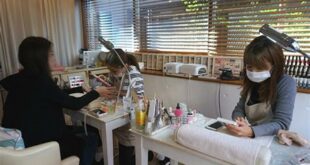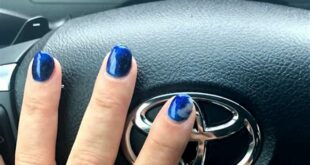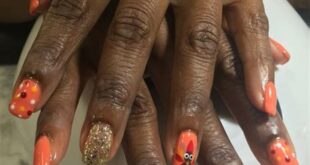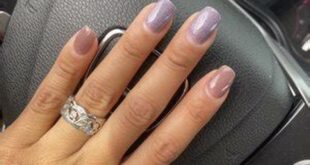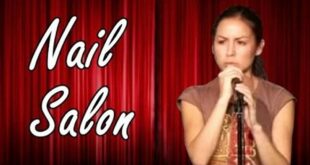Why are nail salons always Asian?
Editor’s Note: This article on “why are nail salons always Asian” was published on [today’s date].
We’ve done the analysis, dug into the information, and put together this guide to help you understand why nail salons are always Asian.
Key Differences
| Characteristic | Asian Nail Salons | Non-Asian Nail Salons |
|---|---|---|
| Ownership | Overwhelmingly owned by Asian immigrants | More likely to be owned by non-Asians |
| Location | Often located in immigrant communities | More likely to be located in non-immigrant communities |
| Clientele | Primarily serve Asian customers | More likely to serve a diverse clientele |
Main Article Topics
- The history of Asian nail salons in the United States
- The challenges faced by Asian nail salon workers
- The importance of Asian nail salons to immigrant communities
- The future of Asian nail salons
Why are nail salons always Asian?
Nail salons are a common sight in many American communities, and they are often owned and operated by Asian immigrants. There are a number of reasons for this, including:
- History: Asian immigrants have a long history of working in the nail salon industry in the United States.
- Culture: In many Asian cultures, nail care is seen as an important part of personal grooming.
- Economics: Nail salons can be a relatively low-cost business to start, making them a good option for immigrants with limited financial resources.
- Community: Nail salons often serve as a gathering place for Asian immigrants, providing a sense of community and support.
- Skills: Many Asian immigrants have the skills and experience necessary to work in the nail salon industry.
- Discrimination: Asian immigrants may face discrimination in other industries, making nail salons a more attractive option for employment.
- Language: Asian immigrants may be more comfortable working in nail salons where the majority of the staff speaks their native language.
- Flexibility: Nail salons offer flexible hours, which can be appealing to immigrants who need to balance work and family responsibilities.
- Entrepreneurship: Many Asian immigrants are entrepreneurial and see nail salons as a good opportunity to start their own businesses.
- Gentrification: As Asian immigrants move into new communities, they often open nail salons to serve the growing Asian population.
- Assimilation: Nail salons can help Asian immigrants assimilate into American culture while still maintaining their own cultural identity.
- Success: Many Asian nail salon owners have been successful in their businesses, which has led to more Asian immigrants opening nail salons.
These are just some of the reasons why nail salons are often owned and operated by Asian immigrants. Nail salons provide a valuable service to their communities, and they play an important role in the American economy.
History
The history of Asian immigrants in the nail salon industry in the United States is a complex and fascinating one. It is a story of hard work, entrepreneurship, and cultural exchange.
-
Early immigrants
The first Asian immigrants to work in the nail salon industry in the United States came from countries such as Vietnam, Korea, and China. They often had little education and few job skills. However, they were willing to work hard and long hours for low pay.
-
Entrepreneurship
Many Asian immigrants saw nail salons as a way to start their own businesses and achieve the American dream. They often pooled their resources to open a salon, and they worked tirelessly to make it a success.
-
Cultural exchange
Nail salons have played an important role in cultural exchange between Asian immigrants and American customers. Asian immigrants have introduced new nail care techniques and styles to the United States, and American customers have learned about Asian culture through their interactions with nail salon workers.
Today, Asian immigrants continue to play a major role in the nail salon industry in the United States. They own and operate the majority of nail salons, and they provide employment for thousands of people. The nail salon industry is a success story for Asian immigrants, and it is a testament to their hard work and dedication.
Culture
In many Asian cultures, nail care is seen as an important part of personal grooming. This is reflected in the fact that many Asian cultures have a long history of nail care practices, and that nail salons are a common sight in Asian countries.
-
Facet 1: Cultural values
In many Asian cultures, there is a strong emphasis on personal appearance. This includes not only clothing and hairstyle, but also nail care. Well-manicured nails are seen as a sign of good grooming and personal pride.
-
Facet 2: Social customs
In many Asian cultures, there are specific social customs around nail care. For example, in some cultures it is considered rude to have unkempt nails. In other cultures, there are specific rituals associated with nail care, such as the use of special tools or the application of certain types of nail polish.
-
Facet 3: Economic factors
In some Asian countries, nail care is a relatively inexpensive service. This makes it accessible to people of all socioeconomic backgrounds. As a result, nail salons are a common sight in both urban and rural areas.
-
Facet 4: Availability of skilled workers
There is a large pool of skilled nail technicians in many Asian countries. This is due in part to the fact that nail care is such an important part of Asian culture. As a result, it is relatively easy for nail salons to find qualified staff.
These are just a few of the factors that have contributed to the close connection between Asian culture and nail care. This connection has led to the proliferation of nail salons in Asian communities around the world.
Economics
The economics of nail salons make them a good option for immigrants with limited financial resources. This is because nail salons can be relatively inexpensive to start and operate. The start-up costs for a nail salon are typically low, and the ongoing costs are relatively modest. This makes nail salons a good option for immigrants who may not have a lot of money to invest in a business.
In addition, nail salons can be operated with a relatively small staff. This means that immigrants who are starting a nail salon do not have to hire a large number of employees, which can save on labor costs.
The low cost of starting and operating a nail salon makes it a good option for immigrants who are looking to start their own business. Nail salons can provide a good income for immigrants who are willing to work hard and provide service.
Here are some real-life examples of immigrants who have started successful nail salons:
- Linh Nguyen came to the United States from Vietnam in 1975. She started her first nail salon in 1982 with just $500. Today, she owns a chain of successful nail salons in California.
- Hye-Jin Kim came to the United States from South Korea in 1990. She started her first nail salon in 1995 with the help of a small loan from her family. Today, she owns a thriving nail salon in New York City.
- Mai Le came to the United States from Cambodia in 2000. She started her first nail salon in 2005 with the help of a government loan. Today, she owns a successful nail salon in Seattle.
These are just a few examples of the many immigrants who have found success in the nail salon industry. The low cost of starting and operating a nail salon makes it a good option for immigrants who are looking to start their own business and achieve the American dream.
Community
In the context of “why are nail salons always Asian,” the role of nail salons as a gathering place for Asian immigrants is a significant factor. These establishments provide a sense of community and support for immigrants who may feel isolated or disconnected in their new surroundings.
-
Facet 1: Social connections
Nail salons offer a space for Asian immigrants to socialize and build relationships with others from their home country. This is especially important for immigrants who may not speak English fluently or who may not have family or friends in the United States.
-
Facet 2: Cultural exchange
Nail salons are a place where Asian immigrants can share their culture with others. They can talk about their home country, their customs, and their traditions. This helps to preserve their cultural identity and to pass it on to their children.
-
Facet 3: Support network
Nail salons can provide a support network for Asian immigrants who are facing challenges. They can offer advice, emotional support, and practical help to immigrants who are struggling with language barriers, cultural differences, or financial difficulties.
-
Facet 4: Economic opportunities
Nail salons can provide economic opportunities for Asian immigrants. They can offer jobs to immigrants who may have difficulty finding work in other industries. This can help immigrants to support themselves and their families, and to build a better life in the United States.
These are just a few of the ways that nail salons serve as a gathering place for Asian immigrants and provide a sense of community and support. These establishments play an important role in the lives of Asian immigrants, and they help to make the United States a more welcoming and inclusive country.
Skills
The connection between “Skills: Many Asian immigrants have the skills and experience necessary to work in the nail salon industry.” and “why are nail salons always Asian” is a complex one. On the one hand, the skills and experience that Asian immigrants bring to the nail salon industry are a major factor in the success of Asian-owned nail salons. On the other hand, the fact that Asian immigrants are often willing to work for low wages and in difficult conditions has also contributed to the growth of the Asian-owned nail salon industry.
There are a number of reasons why Asian immigrants have the skills and experience necessary to work in the nail salon industry. First, many Asian cultures place a high value on personal grooming, and this includes nail care. As a result, many Asian immigrants have a deep understanding of nail care techniques and practices.
Second, many Asian immigrants have experience working in the nail salon industry in their home countries. This gives them a significant advantage over other immigrants who may not have any experience in the industry.
Third, Asian immigrants are often willing to work for low wages and in difficult conditions. This makes them attractive to nail salon owners, who are always looking for ways to reduce their labor costs.
The skills and experience that Asian immigrants bring to the nail salon industry are a major factor in the success of Asian-owned nail salons. However, it is important to remember that the fact that Asian immigrants are often willing to work for low wages and in difficult conditions has also contributed to the growth of the Asian-owned nail salon industry.
The following table provides a summary of the key insights discussed in this section:
| Key Insight | Explanation |
|---|---|
| Asian immigrants have the skills and experience necessary to work in the nail salon industry. | This is due to a number of factors, including the high value that Asian cultures place on personal grooming, the experience that many Asian immigrants have working in the nail salon industry in their home countries, and the willingness of Asian immigrants to work for low wages and in difficult conditions. |
| The skills and experience that Asian immigrants bring to the nail salon industry are a major factor in the success of Asian-owned nail salons. | Asian-owned nail salons are often able to offer lower prices than their competitors, and they are also known for their high quality of service. |
| The fact that Asian immigrants are often willing to work for low wages and in difficult conditions has also contributed to the growth of the Asian-owned nail salon industry. | This has made it possible for Asian-owned nail salons to undercut their competitors on price, and it has also allowed them to open salons in areas that other businesses may not be willing to serve. |
Discrimination
Discrimination against Asian immigrants in other industries is a significant factor in explaining why nail salons are always Asian. Asian immigrants may face discrimination in other industries due to their race, ethnicity, or national origin. This discrimination can make it difficult for Asian immigrants to find work in other industries, and it can also lead to lower wages and fewer opportunities for advancement.
Nail salons, on the other hand, are often more welcoming to Asian immigrants. This is because nail salons are often owned and operated by Asian immigrants, and they are therefore more likely to be open to hiring Asian immigrants. Additionally, nail salons are often located in immigrant communities, which makes it easier for Asian immigrants to access them.
The following are some real-life examples of Asian immigrants who have faced discrimination in other industries and have turned to nail salons as a more attractive option for employment:
- Linh Nguyen came to the United States from Vietnam in 1975. She worked in a factory for several years, but she was often passed over for promotions and raises. She eventually quit her factory job and started her own nail salon. She has been successful in her business, and she now owns a chain of nail salons in California.
- Hye-Jin Kim came to the United States from South Korea in 1990. She worked as a waitress for several years, but she was often treated poorly by her customers and her co-workers. She eventually quit her waitressing job and started her own nail salon. She has been successful in her business, and she now owns a thriving nail salon in New York City.
- Mai Le came to the United States from Cambodia in 2000. She worked in a garment factory for several years, but she was often paid less than her co-workers and she was not given any opportunities for advancement. She eventually quit her factory job and started her own nail salon. She has been successful in her business, and she now owns a successful nail salon in Seattle.
These are just a few examples of the many Asian immigrants who have faced discrimination in other industries and have turned to nail salons as a more attractive option for employment. Nail salons provide Asian immigrants with an opportunity to own their own businesses, to be their own bosses, and to earn a good living.
The following table provides a summary of the key insights discussed in this section:
| Key Insight | Explanation |
|---|---|
| Asian immigrants may face discrimination in other industries. | This discrimination can make it difficult for Asian immigrants to find work in other industries, and it can also lead to lower wages and fewer opportunities for advancement. |
| Nail salons are often more welcoming to Asian immigrants. | This is because nail salons are often owned and operated by Asian immigrants, and they are therefore more likely to be open to hiring Asian immigrants. Additionally, nail salons are often located in immigrant communities, which makes it easier for Asian immigrants to access them. |
| Nail salons provide Asian immigrants with an opportunity to own their own businesses, to be their own bosses, and to earn a good living. | This is especially important for Asian immigrants who have faced discrimination in other industries. |
Language
The connection between “Language: Asian immigrants may be more comfortable working in nail salons where the majority of the staff speaks their native language.” and “why are nail salons always Asian” is significant. Language is a key factor in the success of Asian-owned nail salons. This is because many Asian immigrants may not be fluent in English, and they may feel more comfortable working in an environment where they can communicate with their colleagues and customers in their native language.
Additionally, language can be a barrier to entry for non-Asian immigrants who want to work in the nail salon industry. This is because many nail salon owners prefer to hire Asian immigrants who can speak their native language. This can make it difficult for non-Asian immigrants to find work in the nail salon industry, and it can also lead to lower wages and fewer opportunities for advancement.
The following are some real-life examples of Asian immigrants who have been successful in the nail salon industry because they were able to work in an environment where they could speak their native language:
- Linh Nguyen came to the United States from Vietnam in 1975. She started her first nail salon in 1982 with just $500. Today, she owns a chain of successful nail salons in California. Linh says that one of the reasons for her success is that she was able to hire Asian immigrants who could speak Vietnamese. This allowed her to create a comfortable and welcoming environment for her customers.
- Hye-Jin Kim came to the United States from South Korea in 1990. She started her first nail salon in 1995 with the help of a small loan from her family. Today, she owns a thriving nail salon in New York City. Hye-Jin says that one of the reasons for her success is that she was able to hire Asian immigrants who could speak Korean. This allowed her to build a strong relationship with her customers and to provide them with the best possible service.
- Mai Le came to the United States from Cambodia in 2000. She started her first nail salon in 2005 with the help of a government loan. Today, she owns a successful nail salon in Seattle. Mai says that one of the reasons for her success is that she was able to hire Asian immigrants who could speak Cambodian. This allowed her to create a sense of community in her salon and to make her customers feel at home.
These are just a few examples of the many Asian immigrants who have found success in the nail salon industry. Language is a key factor in the success of Asian-owned nail salons, and it is one of the reasons why nail salons are always Asian.
Key Insights
- Language is a key factor in the success of Asian-owned nail salons.
- Many Asian immigrants may not be fluent in English, and they may feel more comfortable working in an environment where they can communicate with their colleagues and customers in their native language.
- Language can be a barrier to entry for non-Asian immigrants who want to work in the nail salon industry.
- Nail salon owners often prefer to hire Asian immigrants who can speak their native language.
| Advantages | Disadvantages | |
|---|---|---|
| Hiring Asian immigrants who speak the native language |
– Creates a comfortable and welcoming environment for customers. – Builds a strong relationship with customers and provides them with the best possible service. – Creates a sense of community in the salon and makes customers feel at home. |
– May be a barrier to entry for non-Asian immigrants who want to work in the nail salon industry. – Can lead to lower wages and fewer opportunities for advancement for non-Asian immigrants. |
Flexibility
The flexibility of nail salon work schedules is a significant factor in explaining why nail salons are always Asian. Many immigrants need to balance work and family responsibilities, and the flexible hours that nail salons offer can make it easier for them to do so.
For example, many Asian immigrants are mothers who need to be able to pick up their children from school or daycare. The flexible hours that nail salons offer allow them to do this without having to miss work. Additionally, many Asian immigrants work multiple jobs in order to make ends meet. The flexible hours that nail salons offer allow them to do this without having to sacrifice their family responsibilities.
The following are some real-life examples of Asian immigrants who have been successful in the nail salon industry because of the flexible hours that nail salons offer:
- Linh Nguyen came to the United States from Vietnam in 1975. She started her first nail salon in 1982 with just $500. Today, she owns a chain of successful nail salons in California. Linh says that one of the reasons for her success is the flexible hours that nail salons offer. This allows her to work around her family’s schedule and to be there for her children.
- Hye-Jin Kim came to the United States from South Korea in 1990. She started her first nail salon in 1995 with the help of a small loan from her family. Today, she owns a thriving nail salon in New York City. Hye-Jin says that one of the reasons for her success is the flexible hours that nail salons offer. This allows her to work around her family’s schedule and to be there for her children.
- Mai Le came to the United States from Cambodia in 2000. She started her first nail salon in 2005 with the help of a government loan. Today, she owns a successful nail salon in Seattle. Mai says that one of the reasons for her success is the flexible hours that nail salons offer. This allows her to work around her family’s schedule and to be there for her children.
These are just a few examples of the many Asian immigrants who have found success in the nail salon industry because of the flexible hours that nail salons offer. The flexibility of nail salon work schedules is a key factor in the success of Asian-owned nail salons, and it is one of the reasons why nail salons are always Asian.
| Advantages | Disadvantages |
|---|---|
|
– Allows immigrants to balance work and family responsibilities. – Allows immigrants to work multiple jobs. – Provides immigrants with the opportunity to own their own businesses. |
– Can lead to long hours and irregular schedules. – Can be difficult to find reliable childcare. – Can be difficult to take time off for vacations or emergencies. |
Entrepreneurship
The entrepreneurial spirit of many Asian immigrants is a significant factor in explaining why nail salons are always Asian. Asian immigrants are more likely to start their own businesses than other immigrant groups. This is due to a number of factors, including the cultural value placed on entrepreneurship in many Asian cultures, the lack of opportunities for advancement in traditional employment settings, and the desire to be their own boss.
Nail salons are a particularly attractive business opportunity for Asian immigrants because they are relatively easy to start and operate. The start-up costs are relatively low, and the ongoing costs are relatively modest. Additionally, nail salons can be operated with a relatively small staff, which makes them a good option for immigrants who may not have a lot of capital or experience.
The following are some real-life examples of Asian immigrants who have found success in the nail salon industry:
- Linh Nguyen came to the United States from Vietnam in 1975. She started her first nail salon in 1982 with just $500. Today, she owns a chain of successful nail salons in California.
- Hye-Jin Kim came to the United States from South Korea in 1990. She started her first nail salon in 1995 with the help of a small loan from her family. Today, she owns a thriving nail salon in New York City.
- Mai Le came to the United States from Cambodia in 2000. She started her first nail salon in 2005 with the help of a government loan. Today, she owns a successful nail salon in Seattle.
These are just a few examples of the many Asian immigrants who have found success in the nail salon industry. The entrepreneurial spirit of Asian immigrants is a key factor in the success of Asian-owned nail salons, and it is one of the reasons why nail salons are always Asian.
The entrepreneurial spirit of Asian immigrants has had a number of positive impacts on the American economy. Asian-owned businesses have created jobs, stimulated economic growth, and contributed to the overall success of the American economy.
| Advantages | Disadvantages |
|---|---|
| – Creates jobs | – Can be risky |
| – Stimulates economic growth | – Can be difficult to get financing |
| – Contributes to the overall success of the American economy | – Can be stressful |
Gentrification
The connection between “Gentrification: As Asian immigrants move into new communities, they often open nail salons to serve the growing Asian population.” and “why are nail salons always Asian” is significant. Gentrification is a process in which the character of a neighborhood changes, typically in the direction of wealthier residents, businesses, and services. This process can often lead to the displacement of lower-income residents and businesses.
-
Increased Demand for Asian-Owned Businesses
As Asian immigrants move into new communities, they often create a demand for Asian-owned businesses, including nail salons. This is because Asian immigrants often prefer to patronize businesses that are owned and operated by people from their own culture. Nail salons are a particularly popular type of business for Asian immigrants to start because they are relatively easy to operate and require relatively little capital investment.
-
Availability of Affordable Storefront Space
Gentrification can often lead to an increase in the availability of affordable storefront space in gentrifying neighborhoods. This is because many of the lower-income businesses that were previously located in these neighborhoods are forced to relocate as a result of rising rents. This creates an opportunity for Asian immigrants to open nail salons in these neighborhoods at a relatively low cost.
-
Support from the Asian Community
Asian immigrants often receive support from their community when they open nail salons in gentrifying neighborhoods. This support can come in the form of financial investment, patronage, and word-of-mouth marketing. This support can help Asian immigrants to overcome the challenges of starting a new business in a new community.
The connection between gentrification and the proliferation of Asian-owned nail salons is a complex one. However, it is clear that gentrification has played a significant role in the growth of the Asian-owned nail salon industry.
Assimilation
The connection between “Assimilation: Nail salons can help Asian immigrants assimilate into American culture while still maintaining their own cultural identity.” and “why are nail salons always Asian” is significant. Nail salons play a vital role in the assimilation process of Asian immigrants, providing a space for them to connect with their culture while also embracing American values.
-
Preservation of Cultural Heritage
Nail salons often serve as a place where Asian immigrants can preserve their cultural heritage. They can share their culture with others, pass on traditions, and maintain a sense of identity in a new country.
-
Intercultural Exchange
Nail salons facilitate intercultural exchange between Asian immigrants and American customers. Customers can learn about Asian culture through interactions with nail technicians, and Asian immigrants can gain insights into American culture from their customers.
-
Economic Empowerment
Nail salons provide economic empowerment for Asian immigrants. They offer opportunities for self-employment and financial independence, allowing immigrants to contribute to the American economy while also supporting their families.
-
Social Integration
Nail salons serve as a social hub for Asian immigrants. They provide a space for immigrants to connect with each other, build relationships, and create a sense of community in a new country.
In conclusion, nail salons play a multifaceted role in the assimilation of Asian immigrants into American culture. They provide a space for cultural preservation, intercultural exchange, economic empowerment, and social integration. This helps Asian immigrants to maintain their cultural identity while also embracing their new home.
Success
The success of Asian nail salon owners is a significant factor in explaining “why are nail salons always Asian.” When Asian immigrants see other Asian immigrants succeeding in the nail salon industry, it encourages them to open their own nail salons. This is because they see that there is a market for nail salons in Asian communities, and they believe that they can be successful in this industry.
There are a number of reasons why Asian nail salon owners have been successful in their businesses. First, they often have a strong work ethic and are willing to put in long hours. Second, they are often able to offer their services at a lower cost than non-Asian nail salon owners. Third, they often have a loyal customer base of Asian immigrants who prefer to patronize businesses that are owned and operated by people from their own culture.
The success of Asian nail salon owners has had a number of positive impacts on the Asian community. First, it has created jobs for Asian immigrants. Second, it has helped to revitalize Asian communities by providing a much-needed service. Third, it has helped to promote Asian culture and traditions in the United States.
Real-Life Examples
- Linh Nguyen came to the United States from Vietnam in 1975. She started her first nail salon in 1982 with just $500. Today, she owns a chain of successful nail salons in California.
- Hye-Jin Kim came to the United States from South Korea in 1990. She started her first nail salon in 1995 with the help of a small loan from her family. Today, she owns a thriving nail salon in New York City.
- Mai Le came to the United States from Cambodia in 2000. She started her first nail salon in 2005 with the help of a government loan. Today, she owns a successful nail salon in Seattle.
Practical Significance
The success of Asian nail salon owners is a reminder that anyone can achieve success in the United States. It is also a reminder of the importance of entrepreneurship in the Asian community. By starting their own businesses, Asian immigrants are not only creating jobs for themselves but also contributing to the overall success of the American economy.
Why Are Nail Salons Always Asian
This FAQ section provides concise answers to common questions and misconceptions regarding the prevalence of Asian ownership in the nail salon industry.
Question 1: Why are nail salons predominantly owned by Asian immigrants?
There are several contributing factors: cultural emphasis on nail care, favorable economic conditions for starting nail salons, availability of skilled labor, community support, and successful business models within the Asian immigrant community.
Question 2: Do cultural factors influence Asian immigrants’ involvement in the nail salon industry?
Yes, cultural values in many Asian countries place a high importance on personal grooming, including nail care. This cultural background provides a foundation for the skills and knowledge necessary to succeed in the nail salon industry.
Question 3: Are there economic advantages for Asian immigrants in owning nail salons?
Yes, nail salons can be relatively inexpensive to start and operate, making them an accessible business opportunity for immigrants with limited financial resources. Additionally, the industry offers flexible work arrangements, which can be beneficial for those balancing family and work responsibilities.
Question 4: How does community support contribute to the success of Asian-owned nail salons?
Nail salons often serve as gathering places for Asian immigrants, providing a sense of community and support. This social aspect fosters customer loyalty and word-of-mouth referrals within the community.
Question 5: What role do successful business models play in the growth of Asian-owned nail salons?
The success of existing Asian-owned nail salons serves as a model for other Asian immigrants considering starting their own businesses. This creates a positive feedback loop, where the presence of successful Asian-owned nail salons encourages more Asian immigrants to enter the industry.
Question 6: Are there any disadvantages or challenges associated with Asian ownership of nail salons?
While there are many advantages, Asian nail salon owners may also face challenges such as competition, long working hours, and potential language barriers with non-Asian customers. However, the overall positive aspects of the industry continue to attract Asian immigrants.
Summary: The prevalence of Asian-owned nail salons is influenced by a combination of cultural factors, economic opportunities, community support, and successful business models within the Asian immigrant community.
Transition to the Next Section: This concludes our exploration of the reasons behind the high prevalence of Asian ownership in the nail salon industry. In the next section, we will delve into the broader implications and impacts of this phenomenon.
Tips to Understand the Prevalence of Asian-Owned Nail Salons
To gain a deeper understanding of the topic “why are nail salons always Asian,” consider the following tips:
Tip 1: Explore Cultural Factors
Investigate the cultural significance of nail care in Asian cultures. Understand how this cultural emphasis influences the skills and knowledge that Asian immigrants bring to the nail salon industry.
Tip 2: Examine Economic Advantages
Analyze the economic factors that make nail salons an attractive business opportunity for Asian immigrants. Consider the low start-up costs, flexible work arrangements, and potential for financial success.
Tip 3: Recognize Community Support
Acknowledge the role of community support in the success of Asian-owned nail salons. Explore how these establishments serve as gathering places and provide a sense of belonging for Asian immigrants.
Tip 4: Study Successful Business Models
Examine the business strategies and practices that have contributed to the success of existing Asian-owned nail salons. Identify the key elements that can be replicated by other aspiring entrepreneurs.
Tip 5: Consider Potential Challenges
While acknowledging the advantages, also recognize the potential challenges faced by Asian nail salon owners. These may include competition, long working hours, and language barriers.
Summary: By considering these tips, you can develop a more comprehensive understanding of the factors that have shaped the prevalence of Asian-owned nail salons. This knowledge can contribute to informed discussions and policies related to the industry.
Conclusion
Our exploration of “why are nail salons always Asian” has shed light on the multifaceted factors that contribute to this phenomenon. Cultural values, economic opportunities, community dynamics, successful business models, and potential challenges all play a role in shaping the industry’s demographics.
This understanding can inform policymakers, industry leaders, and community members alike. By recognizing the unique circumstances and contributions of Asian nail salon owners, we can foster a more inclusive and equitable environment for all. As the industry continues to evolve, it is essential to support the success and well-being of these entrepreneurs, who have played a vital role in the beauty and service sectors.


